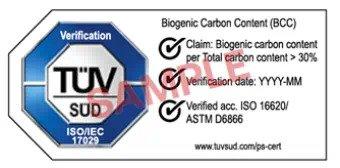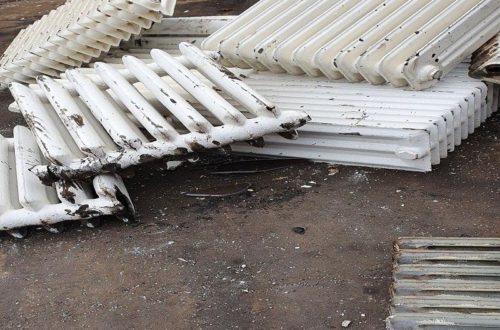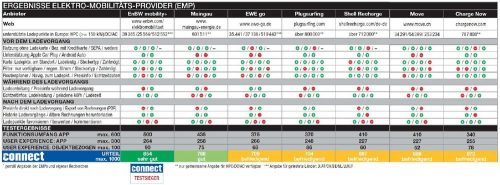
TÜV SÜD expands its biogenic carbon content (BCC) testing and verification services
Biogenic carbon: paving the way for the circular economy
Biogenic carbon is stored in organic materials such as plants, trees, and soil. It differs fundamentally from fossil carbon from non-renewable resources like coal and oil. Because biogenic carbon is renewable, it is a key element in a carbon-neutral economy. Products with high levels of biogenic carbon help to reduce consumption of fossil fuels and accelerate the transition to a greener future.
“As demand for bio-based plastics and organically based materials increases, there is a growing need for determining biogenic carbon levels and verifying claims in this area,” explains Ralph Elbert, laboratory manager at TÜV SÜD. “Our services provide precise results, but also strengthen consumers’ trust in sustainable products.”
State-of-the-art testing and verification methods
TÜV SÜD uses advanced C14 analysis to measure products’ biogenic carbon content. The method, also known as radiocarbon testing, is based on international standards including ISO 16620 and ASTM D6866. As part of successful ISO/IEC 17029 verification, companies are permitted to use the TÜV SÜD mark as confirmation of the credibility and quality of the BCC information they provide.
In addition, BCC verification can be combined with other environmental certification—such as biomethane certification under CMS standards 90 and 92—to cater flexibly to the specific requirements of various industry sectors. This is particularly relevant for companies for which compliance with regulations such as the German Fuel Emissions Trading Act (BEHG) or international standards is mandatory.
Comprehensive range of applications
The services provided by TÜV SÜD cover a host of different industries and products:
• Packaging: Flexible and rigid packaging materials from bio-based plastics
• Plastics and textiles: Leather, rubber, and composites
• Cosmetics and household goods: Fragrances, lotions, cleaning agents, and soaps
• Electronic goods and toys: Plastic components, housings and casings, printed circuit boards
• Building materials: Tiles, wood composite materials, wall coverings and paneling
• Biofuels: Renewable energy sources such as bioethanol
This wide-ranging list demonstrates the diversity of applications for biogenic carbons and the benefits they offer for a sustainable economy.
The TÜV SÜD mark and regulatory requirements
The TÜV SÜD mark for biogenic carbon content provides important evidence of sustainable product characteristics for customers and regulatory bodies. It confirms the biogenic carbon content of a product as a percentage of total carbon content, and supports companies in fulfilling the requirements of the EU Emissions Trading System (EU ETS) and other reporting requirements. In addition, TÜV SÜD provides companies with comprehensive support with their emissions reporting and carbon footprint assessment. This underpins manufacturers’ market position and builds consumer confidence in sustainable products.
Global expertise with local presence
The TÜV SÜD laboratory in Frankfurt is a center of competence for biogenic carbon testing and verification in Europe. Backed by its global network, the TIC company can efficiently provide globally streamlined services, a particular advantage for internationally operating enterprises.
TÜV SÜD’s new BCC services support the transition to bio-based materials, assist companies in complying with statutory requirements, and help build a more sustainable economy. Testing and verification of biogenic carbon content enables companies to reduce their environmental impact, but also to make an active contribution towards creating sustainable circularity.
More information is available on the websites of TÜV SÜD.
Founded in 1866 as a steam boiler inspection association, the TÜV SÜD Group has evolved into a global enterprise. More than 28,000 employees work at over 1,000 locations in about 50 countries to continually improve technology, systems and expertise. They contribute significantly to making technical innovations such as Industry 4.0, autonomous driving and renewable energy safe and reliable. tuvsud.com
TÜV SÜD AG
Westendstraße 199
80686 München
Telefon: +49 (89) 5791-0
Telefax: +49 (89) 5791-1551
http://www.tuvsud.com/de
Corporate Communications
Telefon: +49 (89) 5791-1592
Fax: +49 (89) 5791-2269
E-Mail: Dirk.Moser-Delarami@tuvsud.com
![]()




